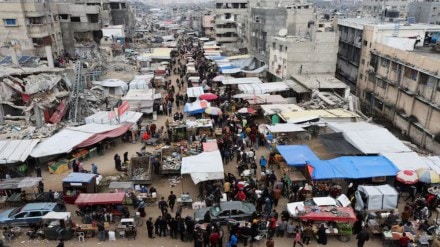A ceasefire agreement between Israel and Hamas in the Gaza Strip came into effect on Sunday, following a delay of nearly three hours. The truce halts a devastating 15-month-long conflict that has caused widespread destruction and loss of life. After months of intricate and tense negotiations, the agreement aims to provide a reprieve from the violence that has gripped the region, while addressing the political and humanitarian crises exacerbated by the ongoing war.
Despite the delayed start, residents and medical workers in Gaza reported no new fighting or military strikes after about 30 minutes before the ceasefire was implemented. However, Israeli airstrikes and artillery attacks killed 13 Palestinians in Gaza between 06:30 GMT, when the ceasefire was originally set to begin, and 09:15 GMT, when it was finally enacted, according to Palestinian medics.
Reasons for the Delay
Israel’s military blamed Hamas for the delay, citing the Palestinian militant group’s failure to provide a list of hostages to be released as part of the agreement. Hamas attributed the delay to “technical” reasons, though it did not elaborate further. A Palestinian official, speaking on condition of anonymity, indicated that the delay was due to mediators requesting 48 hours of “calm” before the ceasefire, but Israeli strikes had made it difficult to send the list of names.
Two hours after the deadline, Hamas announced that it had sent the names of the hostages to be released, with Israeli officials confirming the receipt. The three hostages named for release on Sunday were Romi Gonen, Doron Steinbrecher, and Emily Damari, although Israel did not immediately confirm their identities.
Details of the Ceasefire Agreement
The ceasefire deal follows months of on-again, off-again negotiations, involving mediators from Egypt, Qatar, and the United States. The deal, which is seen as a potential step toward ending the Gaza war, is structured in three stages. The first stage will last six weeks and will involve the release of 33 of the remaining 98 hostages in exchange for nearly 2,000 Palestinian prisoners.
The first hostages to be released will include women, children, and the elderly, and they are expected to be transferred through the Red Cross. In return for each of the hostages released, Israel will free 30 Palestinian prisoners. Hamas will coordinate with the International Committee of the Red Cross (ICRC) to determine the meeting points inside Gaza for the handover.
The ceasefire agreement, though a step forward, does not yet guarantee a full resolution to the conflict. The ongoing war, which erupted after Hamas launched attacks on Israel on October 7, 2023, has claimed thousands of lives, with nearly 47,000 Palestinians killed in the conflict. The war has also exacerbated tensions throughout the Middle East, drawing in Iranian-backed militant groups and causing diplomatic isolation for Israel.
(With Reuters Inputs)
